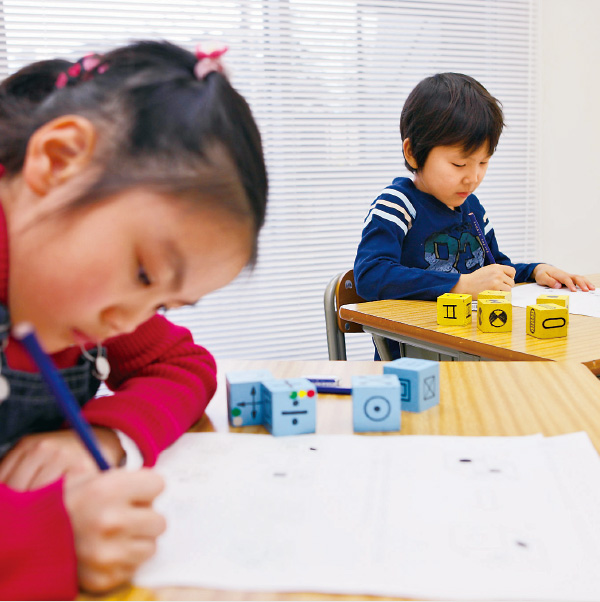The specialized curriculum nurtures thinking ability in keeping with each child`s interests and abilities.
- Lab(Grades 1 to 4)
- Mathematics(Grades 1 to 6)
- Science(Grades 1 to 6)
- Writing(Grades 1 to 4 )
- Social Studies(1 to 4 )
- Computer(1st~6th grade of elementary school)
- Assignment(5th/6th grade of elementary school)
- Advance Math /Japanese Language (3rd grade of elementary school)
- Saturday School(1st/2nd grade of elementary school)
Laboratory(Grades 1 to 4)
Flexible thinking and creativity, the foundations of learning,are expanded here
Topics in Japanese language, arithmetic, science, social studies are taken up, and assignments are created in three areas of intelligence: visual, symbolic and semantic. Children develop the ability to think coherently under new circumstances and to open up new directions. Games and puzzles that utilize what they have learned help their understanding penetrate more deeply.
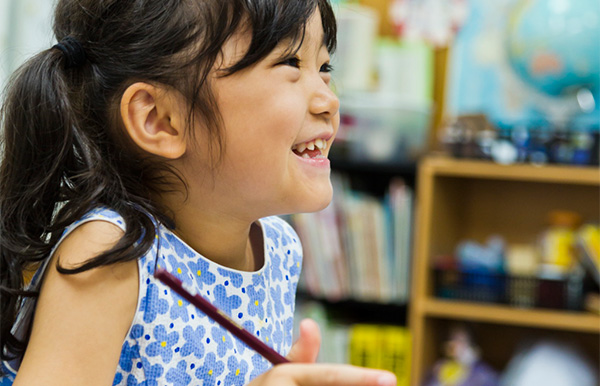
Mathematics(Grades 1 to 6)
The thinking process is emphasized and diagrams and number concepts are used to increasing thinking ability in a logical way.
With arithmetic problems that challenge new ways of thinking, based on children's own experiences and information, thinking ability is logically expanded. The emphasis is more on how their thinking developed rather than on answers being right or wrong.
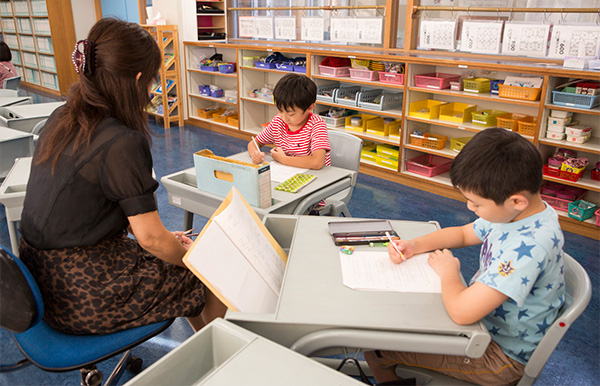
Science(Grades 1 to 6)
Science is studied individually, with classes centered on a hypothesis-based experiment format: hypothesize, experiment, conclude and apply.
Children conduct experiments individually. The hypothesizing, experimenting, concluding and applying processes advance the children's understanding and thinking about rules and principles. In addition, by having firsthand experiences, understanding comes more smoothly and intellectual interest in science is heightened.
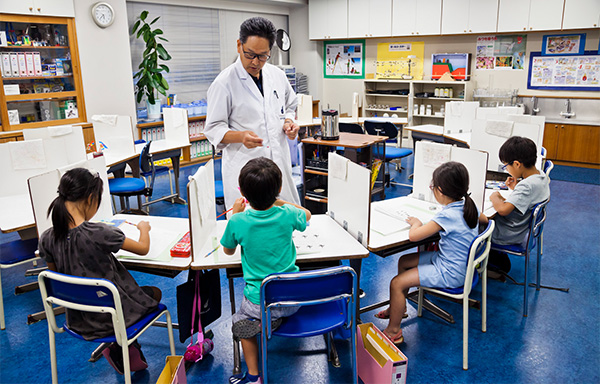
Writing(Grades 1 to 4 )
Within the area of Japanese language we pay special attention to fostering written expression, reading ability, language skills and creativity.
In Writing, we aim to develop the children's powers of written expression, creativity, reading comprehension skills and language ability, and at the same time help them experience the joys of reading and writing. In classes of no more than six, the children read stories or explanatory sentences or write on a range on topics.
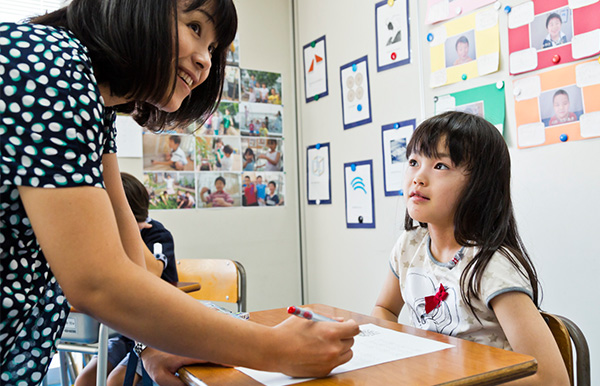
Social Studies(1 to 4 )
Focusing mostly on social studies, we connect the content to Japanese language, science, art, cooking etc.
The Social Studies lessons encompass a range of things such as Japanese language, science, music, art and cooking. There are no more than six children in one class, and each class is run using an approach based upon the experience and research of the New York Dalton School, arranged in a manner to suit Japan.
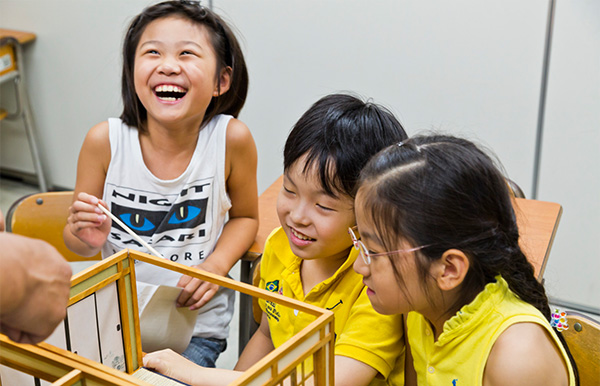
Computer(1st~6th grade of elementary school)
The children use one computer each to draw various charts and program operations
The children create their own programs with advice from the teacher. By writing their own programs they develop initiative and creativity, and also foster an appreciation for the concept of numerical quantity and logical thinking.
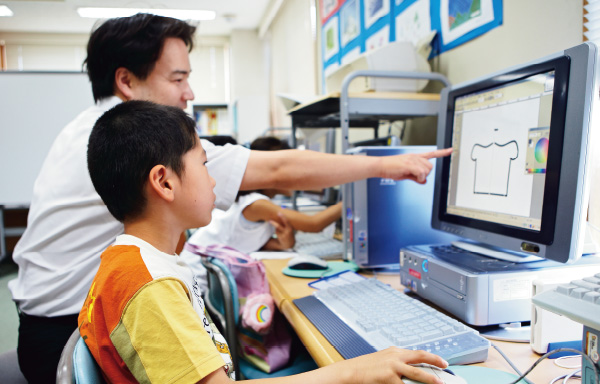
Assignment (5th/6th grade of elementary school)
The children find something to research from a range of topics, study it in depth and write a summary.
Assignment involves the children choosing a topic from a range of fields, researching it themselves and producing a summary. They accomplish this by finding information in books and newspaper articles and going out to carry out surveys. The objective is for the children to develop an awareness of surveys and research, and to improve their problem solving skills.
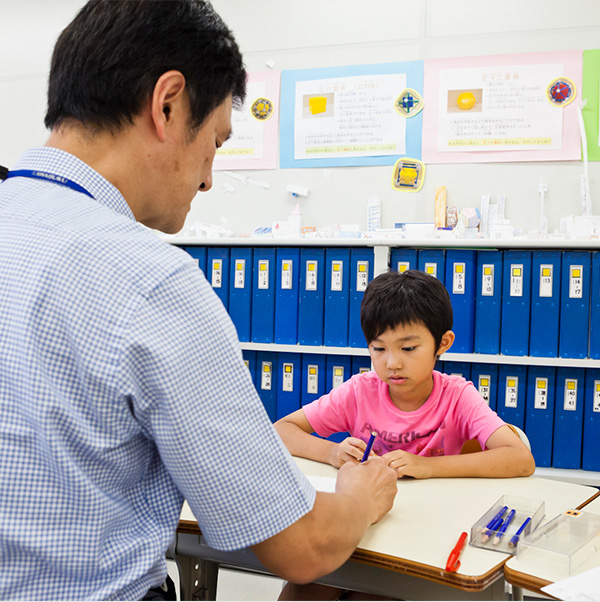
Advance Math /Japanese Language (3rd grade of elementary school)
The children are encouraged to try more difficult tasks based upon the mathematics and science ability gained in grades 1-3.
In Mathematics, the children work with story problems or percentages and probability that require higher levels of applied skills and abstract and logical cognitive ability. In Science, they look at areas such as astronomy, center of gravity and balance and electricity, and in the process deepen their interest in science and enhance their cognitive skills.
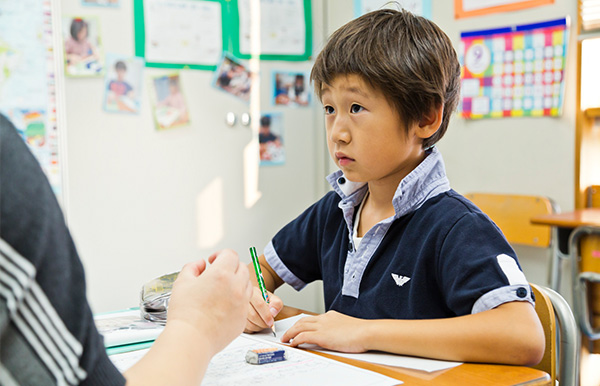
Saturday School(1st/2nd grade of elementary school)
A topic-based program in which the children spend time on Art, Music, Earth Science, Science Crafts, and Computers, etc.
This is a special program of study on Saturdays. We develop the children's interests, cognitive skills and creativity through topic-based projects, art, music, computers, science craft, earth science etc.
